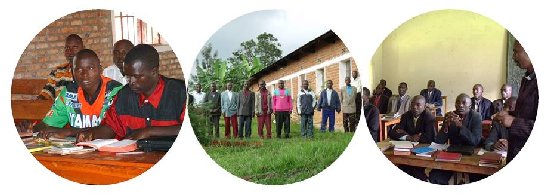The Church is committed to and engaged in education in many forms
Theological education, Church schools and training programmes are among its priorities

Theological Education
Theological education and leadership training for ministry in the Church at all levels have always been, and still are, a priority of the Church.
Every diocese has a Bible School that provides a basic training for ministry for those who have completed primary education. Courses include study of the Old Testament, the New Testament, Church History, and Pastoral and General Studies. Throughout their training students undertake placements for work experience. After 2 years some become catechists in parishes and assist with teaching and pastoral care. Some catechists assume responsibility for a sub-parish. Others who complete the full 4-year course are ordained and become pastors in parishes.
The Province has provided advanced theological training at Matana Theological Institute for many years for those who have completed secondary education. Students have followed a range of courses over 3 years and most have gone on to be ordained having gained a diploma in theology.
Historically students wanting to study to degree level have done so in theological colleges in other countries.
Bujumbura Christian University, located in Bujumbura, is now providing the opportunity for this for future generations of leaders and pastors.
Schools
Church schools are found in most dioceses. These schools are under a Convention with the Government of Burundi and have as their priority the provision of quality education. Whilst the government is responsible for the pay and conditions of teachers, the Church is concerned with the administration, discipline, and values within the schools.
The introduction by the Government in 2005 of free primary education brought challenges. The Church was able to respond to some of them by providing new primary and secondary schools, a new vocational school, and extra classrooms for existing schools. It helped to reduce overcrowding and to ensure the schools were adequately equipped with desks, books, and other essential materials. Head teachers were supported through seminars at which they were able to consider some of the educational issues facing them and share good working practice. The Church was also able to make an important contribution to the strengthening of Christian values through its development of the curriculum in the areas of religious and moral education.
Provision of clubs enables students to discuss their faith and to engage with wider issues such as HIV and AIDS, malaria prevention, and the care and conservation of the environment.
Training programmes
Programmes designed to enhance the capacity of the Church are organised on a regular basis. They enable the Church to work and witness more effectively.
Projects
Education is part of many of the Church's projects. The Bethesda Project, for example, is helping people to re-think their attitudes to disability as well as working to improve the lives of those with disabilities and those marginalised for other reasons.
